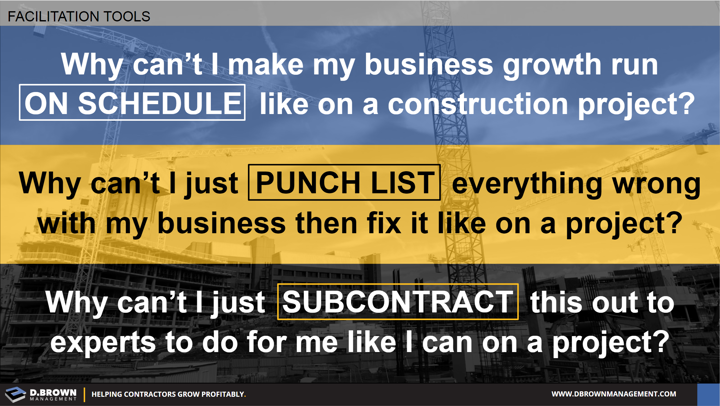A construction business can not be managed like a project even though the primary work of a contractor is building projects. There are three questions that illustrate these differences:
Q: Why can’t I schedule the growth of my company like I can schedule a project?
A: Growing a company has far more unknowns and external influences than a project starting with the vision for the project and associated plans.
Q: Why can’t I just create a punch list of everything that is wrong with my business and complete it like I do on a project?
A: First of all you will NEVER have enough resources to do that; no business does. Secondly it is more critical to identify your true bottlenecks and focus your resources. Any resources spent on a non-bottleneck won’t increase performance.
Q: Why can’t I subcontract this out to experts like I can on a project?
A: Building a business is about building capabilities and capacity. If you don’t invest in the growth of your team ahead of the growth of the business then it will become hollow with a weak foundation. This will lead to highly variable growth and profitability with excessive stress and risk levels. Leverage outsiders to help you build capabilities and capacity for the long term not as an augmentation to your workforce like you do on a project.

